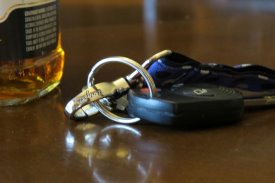DUI SERIES ON OMAHA, NE FIELD SOBRIETY TESTS – OMAHA DUI ATTORNEY
June 4, 2018 | DUI
INTRODUCTION TO SERIES – POST 1
When you have been pulled over in Omaha, NE and the scope of the traffic stop has been expanded to a DUI investigation, whether you are being investigated for driving under the influence of alcohol or drugs, law enforcement has a slew of tests often referred to as “Field Sobriety Tests” that they may ask you to complete. Some of these tests are well recognized and developed with protocol set out by the National Highway Traffic Safety Administration, some are not. The purpose of these field sobriety tests is to help the law enforcement officer develop the requisite probable cause to arrest you for driving under the influence. The purpose of the Field Sobriety Tests is not to prove that you are sober, it is to provide indicators that you are not, and completing them will not help you get off a DUI.
It is important to know that the Field Sobriety Tests do not only include the testing phase but also the Instruction Stage. You are being tested when you do not even know it, if you are unable to maintain your balance or you start the test before the officer finishes the instructions and specifically tells you to begin these indicators that you are intoxicated which help the law enforcement officer find probable cause to arrest you.
Always remember to be courteous with law enforcement officer in the event of any traffic stop but at the same time protect rights. Although they might tell you there is a chance of getting off of the DUI if you cooperate that is often not the case and is just their method of getting you to cooperate in helping them develop the probable cause necessary to arrest you. These tests are intentionally developed to be confusing and difficult to complete properly.
The field sobriety tests you may be asked to complete include:
> Horizontal Gaze Nystagmus
> Walk and Turn
> One Leg Stand
> Romberg
> Finger to Nose
> Counting, either forward or backwards
> Saying the alphabet, forward and/or backwards
In the coming weeks we will publish posts regarding the purpose, method, and validity of each of these Field Sobriety Tests to help you better understand them.
If you agree to participate in the Field Sobriety Tests, which is something you are not obligated to do, it is important to have an attorney examine the video evidence to determine whether the tests were performed, and results interpreted correctly.
For more information on what to do, or not do, contact HYATTORNEYS at 402-933-3345.

DUI Omaha

